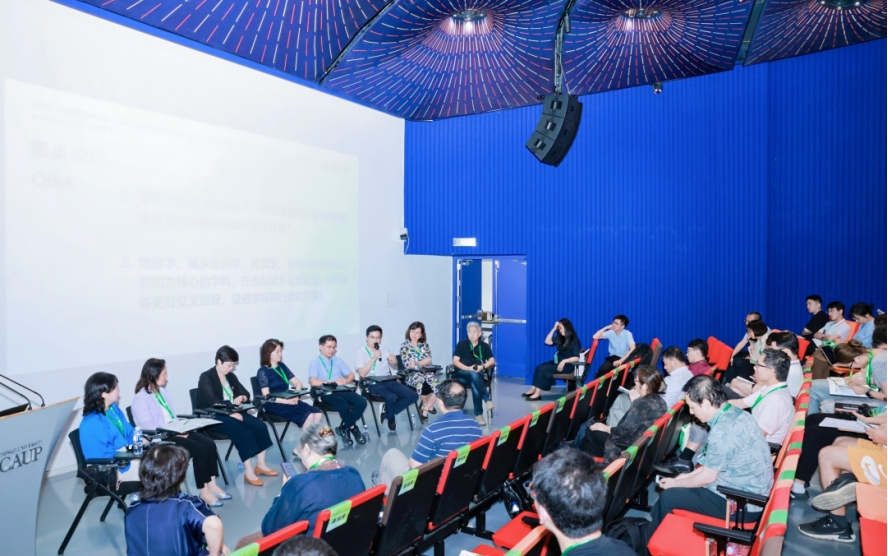
On July 2, 2025, the roundtable forum of the 3rd Healthy Cities Science Annual Conference & The 9th Symposium on the Application of Geographic Information and Spatial Analysis Technologies in Public Health was successfully held at Tongji University. Themed Key Breakthroughs and Multidisciplinary Innovations in Health and Space Research Supported by New Technology Impacts, the forum brought together numerous experts and scholars from diverse disciplines to discuss frontier issues and future directions in healthy city science.


At the beginning, Associate Professor Shao Yuhan from the College of Architecture and Urban Planning at Tongji University briefly introduced the forum's background and objectives, emphasizing the opportunities and challenges new technologies bring to health and space research. Subsequently, guests shared their insights on key breakthroughs in health and space research supported by new technologies.
Professor Long Hao from Chongqing University stressed the importance of returning to real-world scenarios and avoiding technology for technology's sake. Professor Shen Yao from Hunan University warned against technology misuse and advocated for a multidisciplinary division-collaboration framework. Professor Zou Bin from Central South University highlighted the need to decode the black box from objective environment to subjective perception. Other experts, including Professor Lin Guangsi from South China University of Technology, Professor Xu Bing from Tsinghua University, Professor Dong Wei from Harbin Institute of Technology, Professor Cheng Yang from Beijing Normal University, and Professor Mu Lan from the University of Georgia, also shared their valuable perspectives.
This roundtable forum provided a high-level exchange platform for experts and scholars in healthy city science. Through in-depth and extensive discussions, it not only summarized current research achievements but also clarified future research directions. Experts agreed that the development of healthy city science relies on deep multidisciplinary integration, and only by leveraging the strengths of various disciplines can complex health challenges be addressed. In the future, experts and scholars will continue to strengthen cooperation to advance healthy city science from theory to practice, contributing to sustainable urban development and improved resident health.
 ABOUT US
ABOUT US




